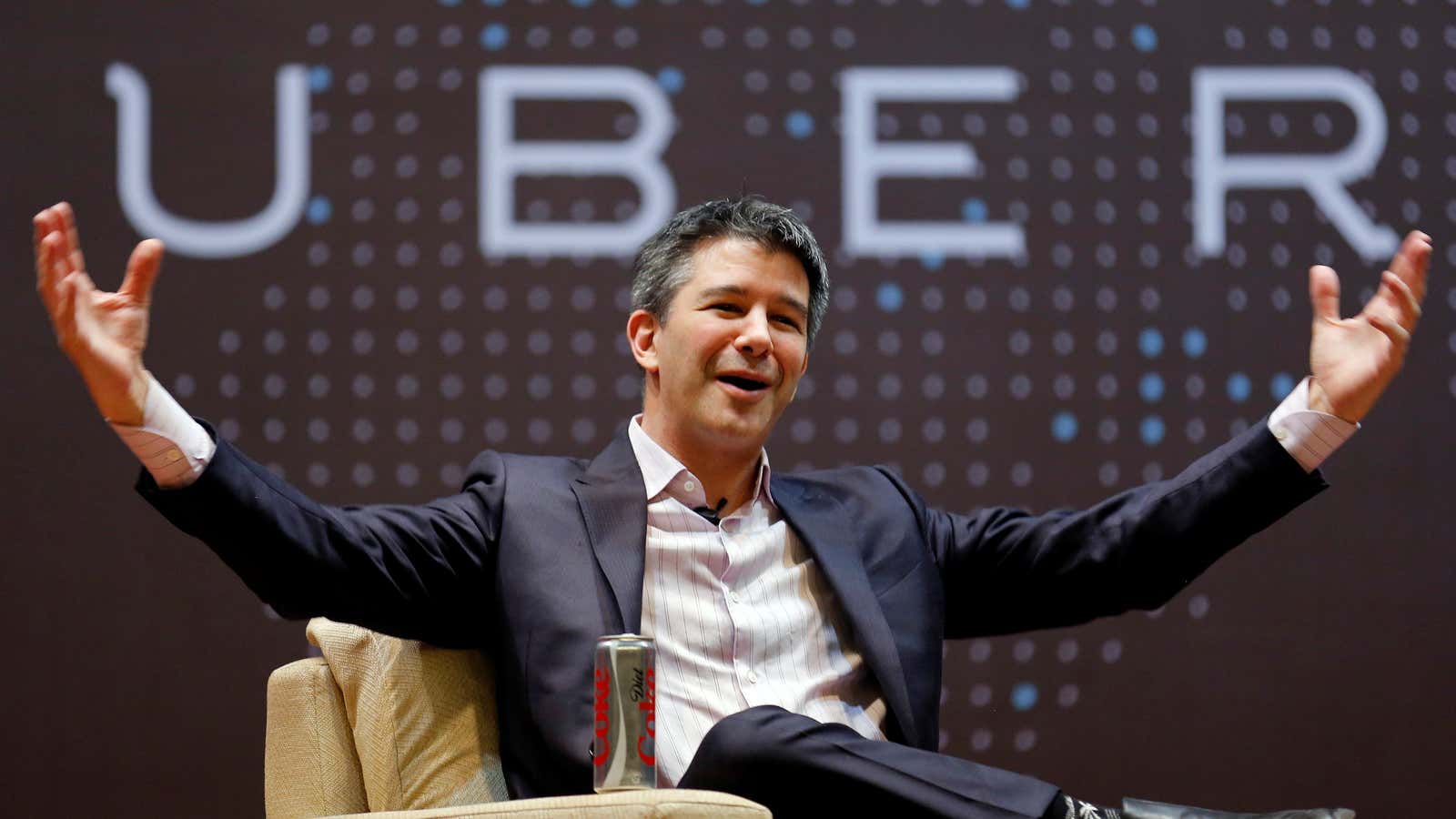As resumes go, Travis Kalanick’s is pretty impressive:
- Serial entrepreneur, launching three startups before turning 35
- Co-founder of a privately held company valued at as much as $70 billion
- Instrumental in creation of the ride-sharing industry, which has expanded across the globe in less than a decade
- Invited to serve on presidential economic advisory council
- Reputation for hard work, drive, “hustle”
For anyone else, that record of success would mean near-limitless opportunities. But Kalanick’s very real accomplishments are only half his story, and it’s the other half—his tenure as Uber’s CEO, presiding over a rule-breaking culture tolerant of sexual harassment—that makes his future much more murky.
Without that stain, it would be easy to see Kalanick taking a senior position at an established car manufacturer like Ford or GM that’s looking to find their way in a future of shared and driverless vehicles. Or perhaps a major tech player like Google or Amazon would want him to lead their forays into the space. Any corporation would have to swallow hard before hiring him, though, knowing his baggage, and the scorn they would receive from investors and customers.
There’s a history of executives rebounding from humiliating exits to rise again. Perhaps the most famous is Steve Jobs, who, like Kalanick, was ousted from the company he founded, only to return and take it to even greater heights. The record of others is more checkered. Jack Dorsey was fired from Twitter, only to be re-hired. Bob Nardelli was booted from Home Depot, given the top job at Chrysler, where he failed again.
Most fired CEOs, particularly those who leave under the cloud of scandal, don’t make it back to the C-suite. The more conventional path is to take on an advisory position at a hedge fund or private-equity firm, sit on some boards, and fade into a comfortable semi-retirement.
It’s hard to see Kalanick—just 40—disappearing like that, even after his personal and professional setbacks. A more likely scenario would be for him to launch yet another startup. Venture capitalists have a high appetite for risk—and with no public shareholders to answer to—one or more might be willing to bet on Kalanick and his track record, while putting in place the management structures to make sure he stays on the rails. And given his pugnacious attitude, it wouldn’t be at all surprising if his new venture was a ride-share company, aimed at taking on Uber.
